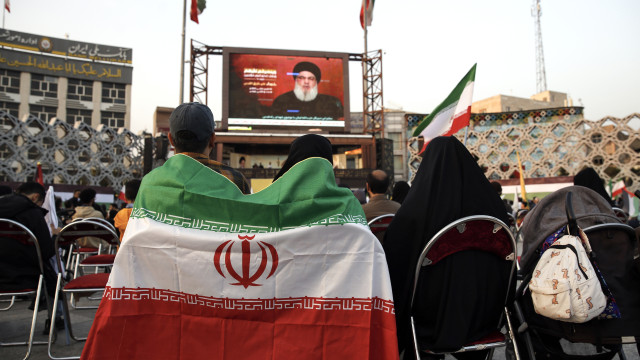Explosions rocked the central Iranian province of Isfahan this morning. US media, citing officials, said Israel retaliated against the Islamic Republic.
The attack comes less than a week after Tehran launched a barrage of more than 300 drones and missiles in its first direct attack on Israeli territory. This unprecedented attack was in retaliation for an earlier strike in Syria that Israel was blamed for.
The escalating standoff between the rivals has led world powers to urge caution and urge both sides not to let the issues at the heart of the war in Gaza spiral into a wider conflict across the Middle East.
Here's what we know so far about the Iran strike:
What was struck?
Earlier today, Iran's Fars news agency reported that "three explosions" were heard near the Shekari airbase in northwestern Isfahan province. Iran's space agency spokesman Hossein Dalirian said several drones had been shot down and that "so far there have been no missile attack".
An unnamed US official told CNN that the Israeli strike on Iranian soil was not aimed at a nuclear site.
Iran's Tasnim news agency reported that "the nuclear facilities in Isfahan province are fully protected." Citing informed sources, the agency also denied that Iran had been attacked from abroad.
According to a local activist group, explosions were also reported in southern Syria.
How did Iran react?
Air defense systems over several Iranian cities have been activated.
According to Mehr news agency, flights to the cities of Tehran, Isfahan and Shiraz have been suspended. Airports in several parts of the country were closed for hours.
Flight tracking software showed they avoided western Iran, including Isfahan, and bypassed Tehran from the north and east.
One of the flydubai planes, which had already departed for Tehran, had to return to Dubai after the airport in the Iranian capital was closed, the Emirates airline said in a statement.
In the morning, Iranian television broadcast live traffic at the roundabout in Isfahan, and the official IRNA news agency said no "major damage" was reported after the explosions.
Why now?
Iran-backed armed groups across the region have been carrying out attacks against Israel since the Gaza war broke out in October.
Iran supports both the Lebanese Hezbollah and the Palestinian group Hamas.
In response to the deadly attack on Iran's consulate in Damascus on April 1, blamed on Israel, Tehran fired hundreds of missiles and drones at its archenemy. Israel has vowed to respond to this attack, which began on March 13. Just hours before explosions rang out in Iran today, the foreign minister warned that Israel would "regret" any attack on his country.
In a speech to the UN Security Council during the Middle East meeting on April 18, Iranian Foreign Minister Hossein Amir-Abdollahian called the Islamic Republic's shelling over the weekend "legitimate defense" and said Israel must "end any further further military adventure".
What was the reaction?
The Israeli military told AFP: "We have no comment at this time" when asked about reports of explosions and strikes in Iran and Syria.
The White House and the Pentagon have not commented on the incident.
Several US media reported that Washington received advance notice of the Israeli strikes, but did not approve the operation and was not involved in its implementation. /BGNES







